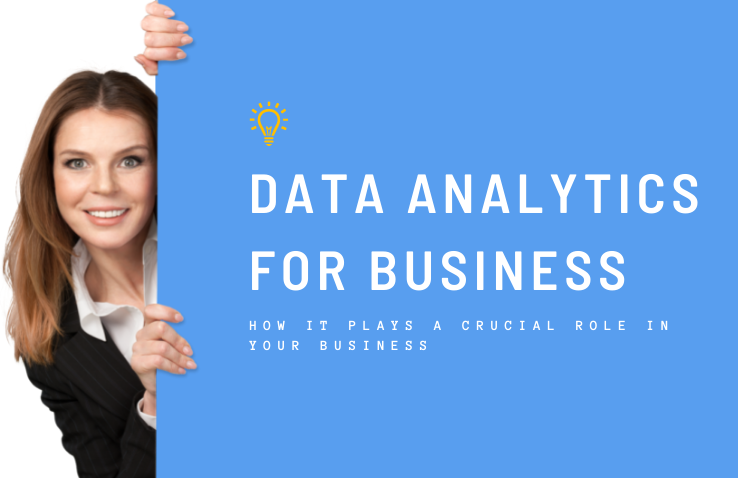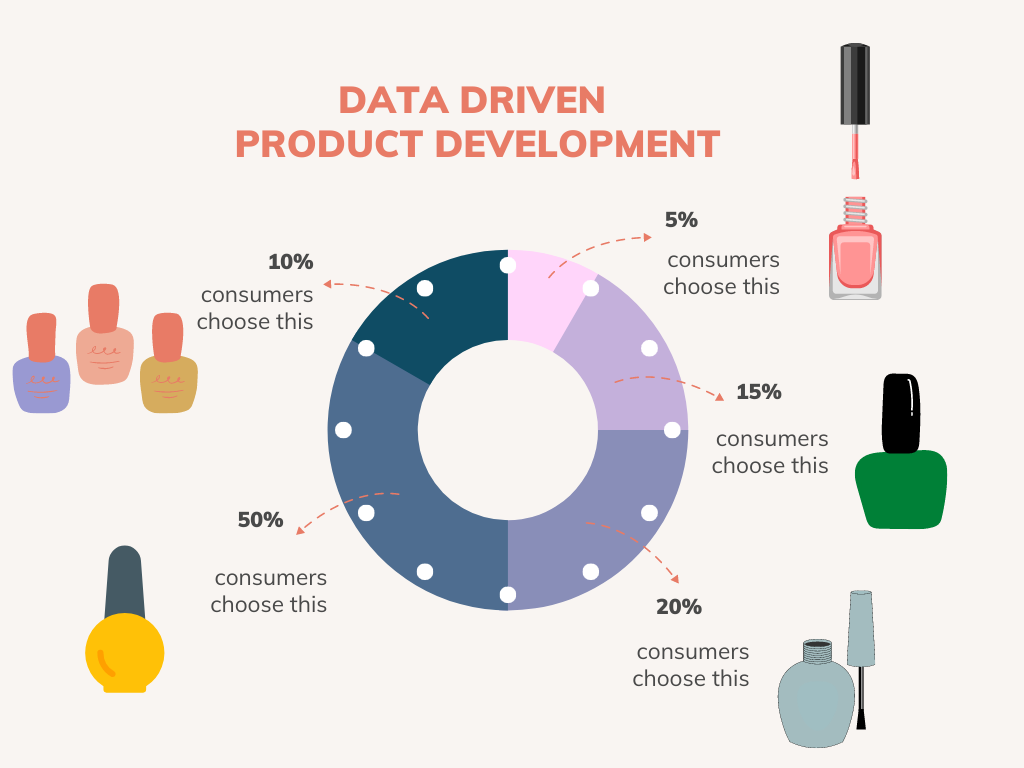
Today, companies can track data at every point of their business journey. Data Analytics unlocks the potential of a business to thrive. It helps a business analyze its customer journey, find loopholes & discrepancies, analyze industry trends, aid in strategic decision-making & most importantly, boost ROI tremendously. Data Analytics takes a business to another level of success! Let’s dive deeper & find out the role of Data Analytics in various domains!
Role of Data Analytics in E-commerce Business!
Ecommerce analytics is the procedure of collecting crucial data from your online store and using this to understand the trends and the shift in consumers’ behavior to make data-driven decisions that will drive more sales.
Data Analytics plays a crucial role in boosting eCommerce sales by adding precision in decision-making. It enables you to dive deeper into the facts and figures, historical data, and future forecasts, empowering you to make wise decisions for your eCommerce business.
Let’s dive deeper!
How can Data Analytics Boost eCommerce Sales?

Demand Forecast –
We can use data analytics to analyze the products-in-demand & the products which are hard to sell. Moreover, we can dig in-depth to find out the reasons behind the demand for these products & thus find out why some products are hard to sell and use these insights to optimize our product portfolio.

Dynamic Pricing –
Data Analytics empowers us to monitor competitors’ prices in real-time & therefore, we can dynamically update our product prices based on the recommendations. As a result, it helps our products to remain viable in the competitive market with recurring price fluctuations.

Track Buyer Journey –
Data Analytics empowers you to analyze the whole user journey & measure the impact of customer behavior on business outcomes. In addition, it allows you to predict user-purchase decisions & enhance the user experience on your site.

Data-driven Product Development –
The real-time insights provided by data analytics facilitate product teams to make informed decisions about upgrading product functionality or adding capabilities & therefore aligning with customer needs more precisely.

Maximize Return on Ads Spend (ROAS) –
Return on Advertising Spend (ROAS) is a metric that measures the effectiveness of an advertising campaign. It helps online businesses evaluate which methods are working and the ways to improve & evolve.

Market Basket Analysis –
Market Basket Analysis is a technique that identifies the association between a group of products that are purchased together. It enables us to understand the probability of a user buying a couple of products together. Consequently, we can recommend the same to all the users who are more likely to purchase such products together.
Role of Data Analytics in Enterprise Resource Planning (ERP)!
ERP leverages Data Analytics to gain remarkable insights into the performance of an organization, empowering the business to gain a competitive edge tremendously.
Let’s have a look at it!

Predictive Analytics –
It assesses the probability of future outcomes based on concrete data, trends & analytics. It also analyses & predicts the profitable resources to invest. Thereby, presenting a more precise and comprehensive view of current and future business operations.

Business Scalability –
A comprehensive view & accurate forecast of the profitability of the business decisions facilitates business scalability. It imbibes precision in predicting seasonal demand, supply, & financial performance. Therefore, presenting a more precise & insightful picture of the current & future health of the organization.

Eliminating Unnecessary Expenses –
ERP can benefit the organization in the long run in terms of cost-saving. Companies can maximize their profitability by optimizing resource utilization & eliminating unnecessary expenditure, enabling them to save and invest in more profitable resources.

Strategic Decision Making –
ERP Analytics offers in-depth reporting, therefore, enabling an organization to make strategic decisions accurately.

Comprehensive Customer Profiling –
ERP Analytics facilitates comprehensive customer profiling, which helps in enhancing customer experience & offering more effective prospect targeting, allowing businesses to focus only on those who are most likely to convert. Thus, increasing the clientele base.
Role of Data Analytics in Inventory Management!
Data Analytics allow Inventory Management to become advanced and demand forecasting to become possible. It helps in managing the availability of stock, the demand of sales, product returns, etc. It also provides insights into customer behavior, the performance of the product & the channel. Data Analytics accelerated Inventory Management to another level.
Let’s see why!!

Speed-up Order Fulfillment:
By properly analyzing & streamlining the entire warehousing process, Data Analytics boosts up the order fulfillment process.

Making Smarter Purchasing Decisions:
Data Analytics helps in identifying profitable stocks & discarding the unprofitable ones, which facilitates smarter purchasing decisions.

Reducing Stock Shrinkage:
It enables frequent monitoring of stock management, leading to identifying discrepancies as & when they arise. Thus, it eliminates the chances of stock/inventory shrinkage tremendously.

Lowering Costs:
It is crucial to maintain the correct level of stock to meet the demand without wasting the valuable warehouse space. Thus, you need to understand the actual cost of holding your inventory, also known as inventory carrying costs. Data Analytics helps in determining deadstock & bestsellers. Thus, reducing the carrying costs, which comprises warehousing and logistics costs, materials handling costs, storage & insurance costs, etc.
Role of Data Analytics in Affiliate Marketing Business!
If you are an Affiliate Marketer, then you must be aware of the impact of Data Analytics in affiliate marketing. It empowers you to track your efforts & get profound insights into the traffic sources & the other relevant factors.
Let’s see how!

Analyze Consumer Cycles –
It provides insights into all the stages of consumer life cycles which helps you in determining customer requirements, tastes & preferences. Thus, assisting you in hitting the target accurately.

Actionable Insights –
It provides actionable insights which help in making informed marketing decisions based on real-time information.

Detailed Targeting –
It allows you to analyze results based on detailed targeting, which includes demographics, devices, behavioral patterns, etc., which helps in broadening the scope & enhancing future campaigns.
Effective Scaling of Campaigns –
It helps affiliates create effective marketing strategies that enhance the growth of their businesses.
Role of Data Analytics in Content Marketing!
Content Marketing without analytics will lead you nowhere! You need to monitor your content marketing efforts by analyzing the data rigorously.
Data Analytics plays a crucial role!
Check Out How you can Leverage it!

Improving CTR:
By analyzing which CTA (Call-to-Action) Button is bringing conversions & which is not, you can properly optimize the CTA button & can increase the CTR (Click-Through-Rate).

Lowering Bounce Rate:
The bounce rate will tell you how frequently users leave your site without visiting other pages. It will help you analyze where users are leaving from & how often. Thus, you can determine how to enhance your performance & reduce the bounce rate.

Increasing Conversion Rate:
It enables you to find the loopholes in your content marketing strategy & improve your conversion rates by allowing you to work on A/B testing & finding better performance. This way, you can increase your conversion rate.

Improving Performance:
By precisely analyzing the performance of your campaigns, you can execute your content marketing efforts in the right direction & thus, improve your performance consistently. These are just a few examples of the power of Data Analytics; it plays a crucial role in all the domains of our business. Its importance is undeniable. It should be integrated into our systems like hands in gloves. The future is data & we should understand its importance to gain momentum & an upper hand over our competitors.